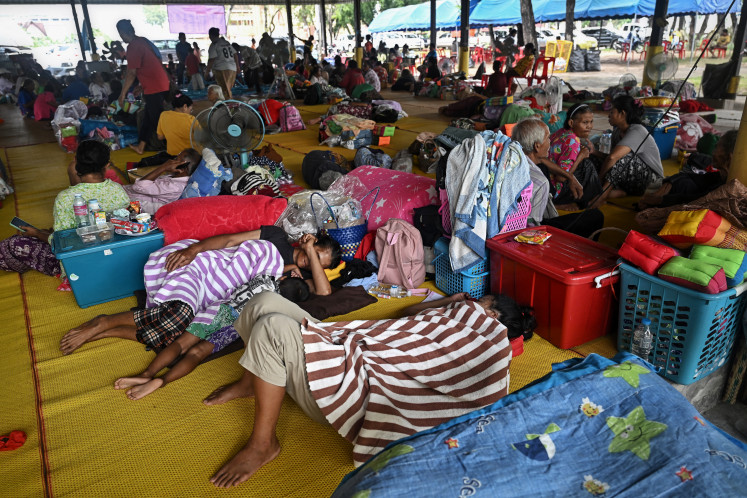Popular Reads
Top Results
Can't find what you're looking for?
View all search resultsPopular Reads
Top Results
Can't find what you're looking for?
View all search resultsPower swaps can solve potential energy crisis in Asia Pacific: ADB
Cross-border power exchanges can play a central role in helping the Asia Pacific region meet its booming demand for power, which is set to sharply outpace the rest of the worldâs over the next two decades, says a new study from the Asian Development Bank (ADB)
Change text size
Gift Premium Articles
to Anyone
C
ross-border power exchanges can play a central role in helping the Asia Pacific region meet its booming demand for power, which is set to sharply outpace the rest of the world's over the next two decades, says a new study from the Asian Development Bank (ADB).
"Our projections show the region will consume more than half the world's energy supply by 2035, with electricity consumption more than doubling as economic growth and rising affluence drive demand," Special Senior Advisor, Infrastructure and Public-Private Partnerships at ADB, S. Chander, said in a statement.
"Countries cannot meet these huge power requirements all on their own, so the region must accelerate cross-border interconnection of electricity and gas grids to improve efficiencies, cut costs, and take advantage of surplus energy."
The Energy Outlook for Asia and the Pacific report provides in-depth data and projections on energy use at the sub-region, country, and sector levels until 2035, along with an analysis of the impact of a "business as usual" approach to power, and an alternative approach in which countries scale up efficiencies and low carbon technologies.
Fossil fuels will continue to dominate the energy mix in the coming decades, with the demand for coal set to rise by more than 50 percent over the outlook period, or nearly two percent a year, led by consumption in the People's Republic of China and a pickup in use in Southeast Asia as countries look for low-cost options to diversify existing supply sources.
Oil demand will also grow by 2 percent a year, led by the transport sector, with newly affluent South Asians buying an increasing number of motor vehicles. Natural gas demand will expand at the fastest annual pace of 4 percent because of the lower environmental burden and ease of use.
The study specifically shows that Indonesia will continue to be a net exporter of coal, while its dependence on oil imports will continue to increase. Meanwhile, the economy is projected to be transformed into a net importer of natural gas sometime after 2030 unless new fields start production.










